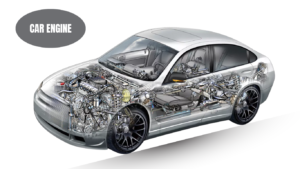7 Reasons Why Buying a New Car Might Be a Huge Mistake
Thinking about buying a shiny new car? You’re not alone. The allure of owning a brand-new vehicle is tempting, with its clean interiors, fresh paint, and the latest tech features. But before you finalize that high-cost decision, it’s worth taking a step back to consider whether buying a new car is really the best move for your wallet and lifestyle.
From rapid depreciation to hidden costs, here are 7 reasons why buying a brand-new car might just be a mistake you don’t want to make.
1. Rapid Depreciation
The harsh truth? New cars start losing value the moment you drive them off the lot. On average, a new car depreciates about 20% in value in its first year alone. By the time you’ve driven it for five years, most new cars lose up to 50% of their original value.
For example, if you purchase a $30,000 car, it could be worth just $15,000 or less after five years. Depreciation doesn’t just affect your bank account; it diminishes your overall return on investment should you ever decide to resell or trade it.
Opting to buy a lightly used car that’s two or three years old lets you avoid that first steep drop in value. You get nearly the same experience as a new car while paying significantly less.
2. Higher Monthly Payments
New cars come with a hefty price tag, and for most people, that translates into higher financing costs. According to recent industry reports, the average monthly payment for a new car loan in the U.S. is above $700. Tack on a longer loan term, and you’re looking at years of hefty bills.
By contrast, used cars usually come with a lower sticker price, which means smaller loan amounts and more manageable monthly payments. This difference can help free up your budget for savings, investments, or other life needs.
3. More Expensive Insurance
Insurance premiums are another area where a new car can cost you significantly more. Insurance companies typically set higher rates for new cars because they’re more expensive to repair or replace in the event of an accident.
For example, insuring a brand-new car can cost upwards of 10–20% more compared to an older model of the same vehicle. With used cars, not only are premiums lower, but you may also have the flexibility to skip certain coverage options, further reducing costs.
Over time, these savings on insurance add up, especially for budget-conscious drivers.

New Car Is a Mistake
4. Hidden Ownership Costs
Sure, that brand-new car looks perfect on the surface, but have you considered the hidden costs of ownership? From dealership fees to state taxes, maintenance, and registration costs, these extras often pile on top of the initial purchase price.
Cars with the latest tech features may also require specialized repairs or software updates. These are seldom covered outside of warranties, and they add to your long-term expenses.
Used cars, on the other hand, often come with lower registration fees and don’t require additional dealer extras that inflate costs right out of the gate.
5. Unpredictable Reliability
Contrary to popular belief, new cars aren’t always guarantees of reliability. Being the first buyer means you’re the one discovering any potential defects. Newly launched models, in particular, can have flaws that haven’t been ironed out yet.
Compare that to a used car, where you can review real-world performance data and scan reviews from other drivers who’ve owned the model you’re considering. Tools like Carfax also allow you to check the maintenance history of used cars, ensuring greater transparency.
By choosing a pre-owned vehicle with a track record of reliability, you dodge any initial bugs manufacturers might still need to address.
6. Depreciating Investment
If you view buying a car as an investment, think again. Cars are not assets; they are liabilities. Unlike real estate, which tends to appreciate over time, cars lose value as they get older.
When you finance a new car with low down payments, there’s also a risk of becoming “upside-down” on your loan. This means that you owe more on the car than it’s currently worth, a precarious position to be in should unforeseen financial situations arise.
Instead, by purchasing a used car, you can reduce the debt burden and make smarter moves with your money.
7. The Opportunity Cost
Think about what else you could do with the extra cash you’d save by not buying a new car. You could invest it in stocks, pay down existing debt, or save for a home. Buying a new car essentially locks up thousands of dollars in an asset guaranteed to lose value.
For instance, skipping a $35,000 new car purchase and opting for an $18,000 used vehicle means you can allocate the remaining $17,000 to grow your savings or build wealth over time. This approach prioritizes your financial stability.
Why a Used Car Makes More Sense
Ultimately, a used car offers the best of both worlds. You’ll avoid significant depreciation, reduce your insurance and monthly payment costs, and even steer clear of many hidden fees. What’s more, modern used cars are increasingly reliable, and many still come with warranties for added peace of mind.
When making such a significant financial decision, consider what really works for you. It’s not about what’s shiny and new; it’s about finding a vehicle that aligns with your lifestyle and budget goals.
Make the Smart Move
Still thinking about buying new? Before you make that leap, weigh your options carefully. Evaluate the financial impact, research reliable used models, and, most importantly, aim to look beyond the seduction of that “new car smell.”
Owning a car is a significant expense, so make it count. Choose wisely and drive confidently, knowing you’ve made a decision that serves not just your budget, but your future.
For more in-depth car buying tips and comparisons, check out our blog at Auto Repair.

